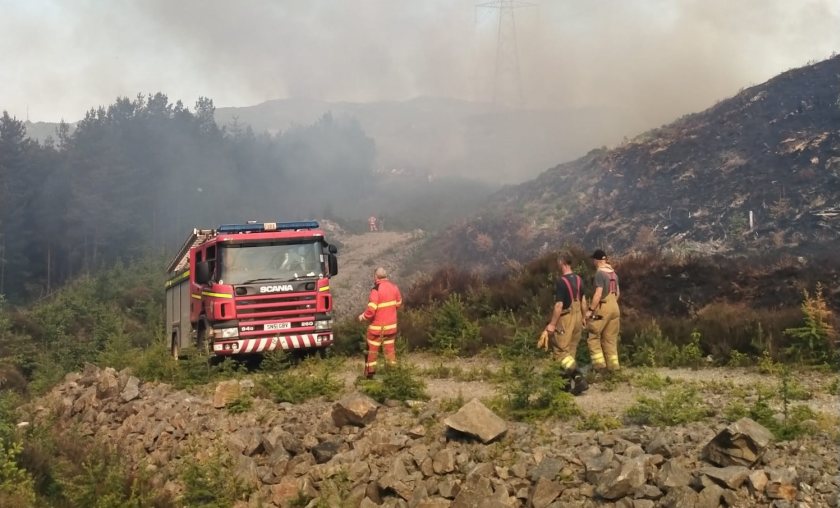
The Scottish Fire and Rescue Service (SFRS) has issued a Scotland-wide warning of a 'very high' wildfire risk, as visitors to the countryside are being urged to exercise extreme caution.
The SFRS warned that many rural and remote communities were being "hugely impacted" by wildfires due to major environmental and economic damage.
The call comes as fire crews, foresters and land management partners continue to tackle a wildlife at Cannich in the Highlands, which has caused severe damage to an RSPB Scotland nature reserve.
Dozens of firefighters have tackled the blaze, which began on Sunday 28 May and remains ongoing.
Over the weekend, firefighters have also been tackling a wildfire at Daviot, near Inverness, which reportedly covers an area a mile long.
?? Emergency services remain in attendance at a wildfire in Daviot near Inverness.
— Scottish Fire and Rescue Service (@fire_scot) June 11, 2023
Evacuated residents are asked not to return to their homes, and people in the local area should keep their windows closed to prevent smoke inhalation. pic.twitter.com/qI8K5DByWd
And there has also been a smaller fire in Tentsmuir Forest, north east Fife, to which fire crews from three areas responded.
As well as damaging moor land and forest, wildfires also have a devastating impact on wildlife and can put farmers and landowners' property at risk.
SFRS station commander, John Harvey said visitors to the countryside "must make sure that they don’t increase the chance of wildfire".
“Wild and grass fires can start by the careless disposal of cigarettes and barbecues or campfires left unattended," he warned.
“They then have the potential to burn for days and devastate vast areas of land, wildlife and threaten the welfare of nearby communities.”
Forestry and Land Scotland (FLS) has joined with the SFRS in urging anyone who planning to visit the countryside to "help save lives by exercising extreme caution".
Simon Hodgson, FLS chief executive, added that the last few weeks had been unusual for the lack of rainfall in some parts of the country as well as the extended period of hot, sunny weather.
He said the risk of wildfire in these conditions was significantly higher than normal. “Do not light campfires, do not smoke and think twice before using a camping stove," he advised.
"And if you really have to use a stove, make sure it is as stable as possible, is well away from any flammable material and is on a level and preferably fire resistant surface.
“We have all seen in the last two weeks how devastating wildfires are and how quickly they can spread. We all need to be vigilant and be aware that all it takes is one glowing ember land in the wrong place.”
Advice for public
Rural groups have issued guidance and advice to the public to help prevent wildfires:
• Do not discard cigarettes.
• Do not start fires or use BBQs as they frequently cause wildfires.
• Dispose of all litter appropriately.
• Do not release sky lanterns. Once released, there is no control over where they end up.
• If anyone finds themselves in a position where they encounter a wildfire that they are unable to bring under control safely, move to a safe location up wind and call the emergency service on 999 immediately, giving an accurate location of the fire.
